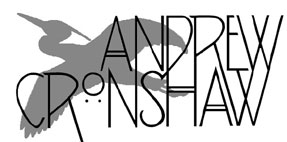
- Andrew Cronshaw website -
- Andrew Cronshaw MySpace -
- Cloud Valley Music website -
- Andrew Cronshaw website -
- Andrew Cronshaw MySpace -
- Back to Reviews Introduction page -
Written in Folk Roots issue 169, 1997
GHÝMES
Tüzugrás - Firejump
Fono FA-014-2 (1996)
VASMALOM
Vasmalom III
RG Music CD 17001 (1996)
NIKOLA PAROV
Kilim
Hannibal HNCD 1408 (1997)
Stabbing cimbalom, high scribbling fiddles, squealing bagpipes, chugging bowed
bass and all-out, throat-straining male vocals open this, the second CD by the
Hungarian group (now of four members - two Bujáks and two Szarkas) Ghýmes from
Slovakia.
Here the themes, all written by either Gyula or
Tamás Szarka, are even more emphatically stated than they were on its
predecessor; a massed anthemic chorus and dense, driving instrumentation in
Ifjú Szivekben Élek (I Live In Young Hearts), a crowd scene of drums and
shouts slipping into blocks of quivering cimbalom and skirling pipes in
Tüzugrás then into the sensuous Arabic-sounding rhythm, sobbing clarinet and
sweeping tune of Szerelmes Dal (Love Song) featuring the female vocal of
guest Bernadett Kiss.
It’s conceivable that the Urban-Turbanishness of
Pozsonyi Blues might be greeted with groans by those of us west of Senec;
there seems to be a thread of tradition in Hungarian bands doing a blues
(Vasmalom, on its previous album, for example) but, hey, it’s no more
nonsensical for a Slovakian-Hungarian to have blues roots than it is for, say, a
Brit. Anyway, if one pushes on through, it’s followed by another anthem, which,
although perhaps not the strongest track, has a memorable tune and manages to
include a children’s chorus without being too icky (and it’s not tokenism or
soppiness; earlier cassette-only releases indicate that the band has done a good
deal of work with children).
No blues for Vasmalom this time, though. Like
Ghýmes, the band continues to stretch the Hungarian roots music envelope. It’s
Hungarian music, developing in a Hungarian way, not necessarily delivering up
the music that west-European ears have come to expect, and if this album is,
while not short of melodies, more improvisational and perhaps less full of big
tunes than its two predecessors... well, it’s their music, it’s Hungarian
exploration. Whatever, it’s full of life, beauty and character.
Dazzling cimbalom player Kálmán Balogh has
probably played the gypsy standards more times than he’d care to remember, and
in this band he gets to push into other realms, as does wind player Balázs
Szokolay using a range of instruments including bagpipes, sax, the huge three
holed overtone whistle fujara, the higher-pitched furulya, and Mongolian
overtone-singing, along with Tibor Csuhaj’s swingy double bass, László Nyiri’s
violin, Gábor Reöthy’s drum and mandocello, and vocals from Ágnes Papp (who in
the current touring band replaces Éva Molnár, though the latter still
contributes two fine characteristically still, reflective vocal tracks, somehow
evoking the sensation as of a woodland clearing in which the birds have
strangely fallen silent).
Leader of another seminal Balkan
roots-progressive band, Zsarátnok, and recently producer/arranger of Márta
Sebestyén’s Kismet album, Nikola Parov was born in Bulgaria, but has lived in
his mother’s homeland of Hungary since childhood (though, these days, wherever
Riverdance North America hangs its taps, that’s his home). On Kilim he
draws together some of his Irish and Hungarian musical collaborators, including
Davy Spillane, Máirtin O’Connor, Noel Eccles, Des Moore and Ferenc Sebö (another
leader in the flowering of Hungarian-rooted bands).
It’s far from the grainy texture of the Ghýmes
and Vasmalom; for much of the time this album has the feel of intricate, cool,
folk-rooted jazz-rock, an impression increased by the prominent presence of Ken
Edge’s soprano sax. The more the wonderfully elusive sound of the gadulka and
one of the world’s great flutes, the kaval, both in Parov’s able hands, assert,
the more, for me at least, this takes off.. He goes in for a spot of overtone
singing, too, on Ritual, and also uses another voice, more joik-ish, and
the result for a while bears a passing and welcome resemblance to the Norwegian
Frode Fjellheim Jazz Joik Ensemble. And the closing track pulls it together, a
reminder that part of what attracted me to Zsarátnok’s second album,
Holdudvar, was the way it led through related traditions, on a definite path
of connectedness; so here Passio moves from the form of a traditional
Bulgarian kaval piece into a powerful Arabic-inflected groove, through angular
keyboard-led stabs into a tranquil, lyrical theme for oboe and strings.
© 1997
Andrew Cronshaw
You're welcome to quote from reviews on this site, but please credit the writer
and fRoots.
Links:
fRoots - The feature and
review-packed UK-based monthly world roots music magazine in which these reviews
were published, and by whose permission they're reproduced here.
It's not practical to give, and keep up to date,
current contact details and sales sources for all the artists and labels in
these reviews, but try Googling for them, and where possible buy direct from the
artists.
CDRoots.com in the USA, run by
Cliff Furnald, is a reliable and independent online retail source, with reviews,
of many of the CDs in these reviews; it's connected to his excellent online magazine
Rootsworld.com
For more reviews click on the regions below
NORDIC
BALTIC
IBERIA (& islands)
CENTRAL & EASTERN EUROPE, & CAUCASUS
OTHER EUROPEAN AMERICAS OTHER, AND WORLD IN GENERAL
- Back to Reviews Introduction page -